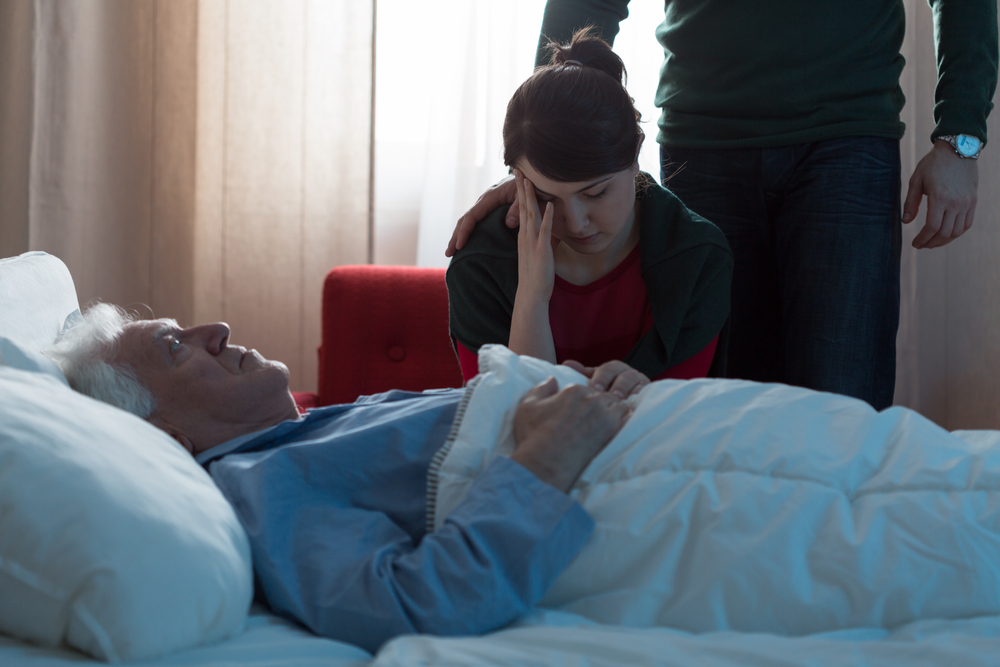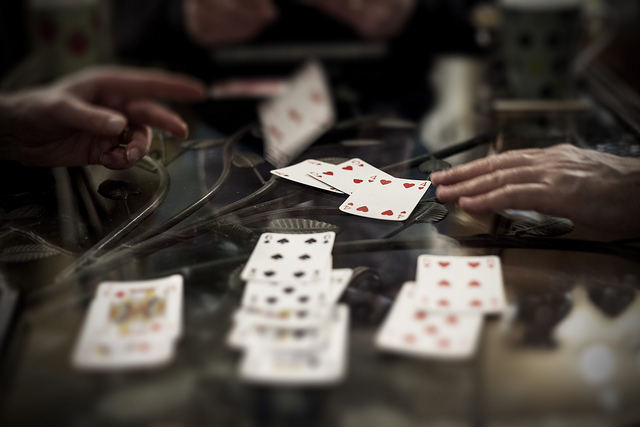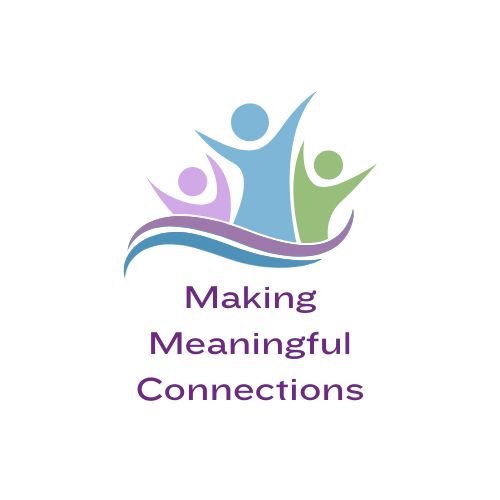
by Barb Abramson | Nov 8, 2017
I remember vividly the moment I knew that a major change was needed for my parents. My mom had some major medical complications and needed a level of care my father could no longer provide. I was on the phone with my cousin, wandering through the grocery store, trying to find something to cook for their dinner. This became a nightly ordeal.
His early dementia (that would eventually lead to Alzheimer’s) and her short-term memory loss from a stroke, combined with congestive heart failure, kidney issues, and diabetes meant they could no longer live at home on their own.
Stressed with their care, my job and care for my then teenage son, I was exhausted and unable to care for them as well.
My cousin, sensing my despair, urged me to consider Assisted Living Facilities (ALF’s) so that all of us would be able to live happier lives.
I searched and found the perfect solution—close to my home, affordable and with activities I was sure my parents would enjoy.
Within two weeks, I had them moved in and began renovating their home for sale, confident that life was back on track for everyone.
However, I made a huge mistake. I didn’t consult with my parents on the place I picked out and it caused some hurt feelings. The truth is, most seniors don’t choose to move to Assisted Living.
Here is what I could have done better.
1. Sit down with my parents to discuss the need to move
My parents had lived in their house for 37 years and the decision to move them was not theirs. There were other solutions I should have considered including home care.
2. Involve them in the selection of their new home
Once my parents knew they were moving, the decision had already been made on where they were moving to. I had invested the time to visit and explore all the options-looking at the places that were most convenient to me, were in our price range and had a few activities I thought my parents would enjoy. I never considered where their friends might be living and thought I was being the good daughter by taking care of the details for them. Instead, they felt shoved into a situation without any control.
3. Help them adjust
Being “relocated” was a big culture shock for my parents. Moving from a three-bedroom, two-bath home to a much smaller apartment was difficult in many ways. Besides feeling displaced, they weren’t able to take all their things with them and although I didn’t recognize it, depression set for both of them. I realize now that talking to a counselor may have made it easier for all of us.
My own exhaustion got in the way of making better decisions.
If you are going through something similar, know There are experts that can help guide you through the process and ease the stress and transition for everyone involved, including social workers, estate planning attorneys, religious organizations, and community organizations that specialize in seniors.

by Barb Abramson | Jul 20, 2015
Four years ago I made a decision that still haunts me. A decision that would change lives forever. His would be ended. Mine would be empty without him.
Guilt. It is something I have been holding in my heart since that day. Did I make the right decision? Could I have done something different, made another choice, gone in a different direction, tried something else?
Some will say taking him to Hospice was the humanitarian thing to do. I allowed him to die with dignity. I signed the papers that gave permission to inject him with a sleep-inducing , until many days later, he drew his last breath. It took much longer than it did when I took my beloved dog Scooby to the vet, but it felt the same. It felt like I had put my dad down.
My dad was a very kind and gentle man. Hel loved tooling around in his garden, playing bridge, and solving puzzles. He had a dry wit that I loved and to this day I smile thinking about his silly jokes.
He beat Leukemia, followed by a nasty bout of shingles. He worried deeply when Mom had a heart attack and she barely survived open-heart surgery, contracting MRSA while still in the hospital. The rest of her life involved daily struggles with diabetes, kidney failure, and congestive heart failure. Dad felt pained giving her insulin shots. It weighed on him heavily.
He took care of her the best he could until he couldn’t any more. Dementia crept in, and then Alzheimer’s. Too many things were falling through the cracks, and changes had to happen. First I hired in-home care for a little help with laundry and cooking, while I sorted out the bills. It turned out it wasn’t enough.
Years before, my parents went on a trip, dawdling around the country for the summer, I asked my dad to give me power of attorney and to be their health care surrogate – just in case. I paid their bills while they were gone, knowing that if anything happened to them on the road, I could make necessary decisions on their behalf.
With Mom and Dad’s health in jeopardy in their later years, having those documents allowed me to help them live better lives. It also allowed me to uproot them from the home they loved for 37 years and place them in an Assisted Living Facility, sell their home and make decisions for them that I know they didn’t agree with. I told myself I was doing it for them. They could no longer take care of their home. Dad had taken out a reverse mortgage and was tumbling into debt. I was struggling to pay their bills, and their self-care was going downhill fast. The food in the fridge was spoiling. So many things were going wrong every day and I was alone trying to help them and was exhausting my solutions and myself.
Walking through the grocery store one evening in tears, trying to figure out what to make them for dinner, I realized that I was falling apart. Mom needed insulin four times a day, and their life and mine felt turned upside down. Two weeks later, I moved them to an Assisted Living Facility and I know they resented it deeply. From a three bedroom, two bath house with a full kitchen and back yard, they were now crammed in a one room studio apartment because it was what they could afford. I sold their house paid off their debts and spent the next four years watching them both decline. Mom physically and Dad mentally.
As Mom continued to struggle with her health issues, Dad drifted into his own world. Sleeping was his escape from the fear of what was happening to both of them.
Becoming the parent of your parents is one of the hardest things. I had to make the decision to sell his car. He never understood that he was no longer safe on the road, even though he had failed a road test. Dad said he slept to escape his sadness and frustration. I have trouble sleeping sometimes feeling I contributed to much of it.
When Dad became too disoriented for activities of daily living according to the ALF, I moved him to the Alzheimer’s ward. I think it confused him even more, not being with mom and I know it broke my mother’s heart. She died six weeks later; I think she gave up.
I never told Dad that Mom had passed, another decision that festers in my heart. He was struggling with his own mind, not knowing who people were although he did know me. I just couldn’t bear to add sadness to his journey.
Then Dad contracted C. diff (Clostridium difficile), a bacterium that can cause symptoms ranging from diarrhea to life-threatening inflammation of the colon, and ended up in the hospital and then a nursing home for rehab. He couldn’t come back to the ALF until he was cleared of the contagious bacteria. I watched him decline more each day, both mentally and physically. There were many sleepless, tear-filled days and nights.
Finally, he was cleared to return and go back to his shared room. He was barely eating, and continued to lose weight. Sometimes he would eat a little for me, but he was now sleeping almost 20 hours per day. The ALF recommended I call in Hospice to help him. It was so confusing and overwhelming. I wasn’t ready to let him go. I sat by his bed for hours, begging him to wake up and eat. By the second or third night, he was breathing heavy. Hospice said I could sit with him all night as he was transitioning, but I couldn’t wrap my head around what was being told to me and I called 911 to take him to the hospital.
Dad was severely dehydrated by then, but within 45 minutes of a saline IV, was suddenly alert and talking a little with me. I was kicking myself. Dehydration – that was all it was. I could have made a horrible decision. The hospital admitted him for a few days and although confused, he was doing better and the physical therapy staff even got him up and waking a little in the halls.
And on one of the walks, he had an accident and lost control of his bowels. I was more upset than he was. Alzheimer’s is both a blessing and a curse. The hospital insisted on testing for bacteria and sure enough, the C-Diff was back and more serious than before.
The doctor quickly went from – “He can go back to the ALF” – to “He will likely never recover from this.” His body was weak, he was nearly skin and bones and my heart sank.
My father had been sleeping most of the day. He moaned and groaned a lot, whether from physical pain or emotional, I wasn’t quite sure. And then in a moment of lucidity, he opened his eyes and reached out his arm for me. I quickly moved over to sit by him on the bed and he looked at me and said, “I love you” and then closed his eyes and slept again.
I left the hospital that night in tears, knowing that I couldn’t send him back to the nursing home. And I couldn’t send him back to the ALF. During his three-week stay there he had declined rapidly and it was not an environment I wanted him to spend anymore time at. I arranged and met with the Chaplain at the hospital to help me with my decision. It didn’t matter that I was Jewish and he was Christian. It wasn’t about how you prayed, it was about faith and comfort – and my guilt.
Two days later, my dad was moved to the Hospice Facility. Moving him woke him up and he came into the building on a stretcher, sitting up and fairly alert. I panicked. “Wait – Dad is alert. He’s back. It’s ok. We don’t need to be here!” The staff took him to his room and settled him in bed while they took me on tour. I told them he didn’t walk any more, he was too weak and suddenly he was trying to climb out of bed, wanting to check out the room, the bathroom, wanting to know, “Is that a TV?” I don’t think there is a scarier rollercoaster than the one my emotions were on.
My heart was pounding. Dad settled down and then looked at me and waggled his index finger. “You’re a good Daughter,” he said. Those were the last words he spoke to me. He closed his eyes and drifted off to sleep and a short time later the nurse came in, morphine in hand. I spent the next four days by his bedside talking to him, soothing him, telling him I loved him and finally, telling him that Mom was waiting for him. An hour after I left on that fourth day, he passed.
I still hold on to the thoughts of did I do the right thing, did I do enough, and did I have the right to make the decisions I did.
I have told myself that my dad died with dignity and I helped make that happen. But as it is with every Father’s Day, my heart is still heavy.
Originally published on The Good Men Project

by Barb Abramson | Mar 16, 2015 |
I am sitting in my favorite chair, listening to the birds chirping madly away in their morning reverie and thinking of my dad. How he loved the birds that played in his back yard. He constructed feeders for them and would point out the cardinals and blue jays that would swoop in to eat, competing with the squirrels that thought the food was theirs.
I have so many great memories of times with my dad. He loved puzzles, road trips, cracking jokes, silly puns, and gardening. I love all those things too and truly wish I had spent more time with him in those activities.
Moving my parents to an Assisted Living Facility was life changing for both of them. The backyard birds, the gardening, their car, and many of the things dad loved went away. I left the bird feeders up at their place, but now wish I had brought them to my house.
When someone you love is ill, as my dad was with Alzheimer’s, you often forget about maximizing the time together. It’s easy to get caught up in caring for them while you are still running around maintaining your own schedule and busy life.
If I could spend some more time with my dad, I would carefully maximize every moment, even if it meant just hanging out together enjoying each other’s company.
Here are 3 things I wish I’d done to make most of my time with my dad.
Preserve the Memories
Journal their stories, or record an audio or video version. I wish I had used a tape or video recorder to capture his memories. I can’t pick up the phone to call him anymore to ask about a relative or event I am fuzzy on, or one I heard him tell me in my much younger days.
Create Meaningful Memories While You Can
Take the time to take that road trip or whatever activity is important to them. We get so caught up on our lives, with work and taking care of our home and running our own kids around. My dad wanted me to try out for Wheel of Fortune with him and I was too busy. What a memory that would have been!
Learn from Him
Dad love to woodwork and I have a charming cabinet he made. He was a bit of a handyman who also taught me how to hang wallpaper, change a tire and the oil in my car. But he always wanted me to learn to play Bridge, his favorite card game. He would travel to tournaments around Florida and sometimes to other states. I wish now I had learned to play from him and with him. We could have combined that hobby and a road trip and gone to a tournament together!
I realize now how precious my memories are. I think that is why I love to connect seniors to their memories.
My son and daughter-in law will be home in a few weeks. They along with my husband are big bowling fanatics and I’m not. But I decided to go with them to watch, laugh, take pictures and make some memories we can all cherish.
Previously published on The Good Men Project
Photo: Flickr

by Barb Abramson | Dec 30, 2014
Several years ago, after coming to the painful realization that they could not take care of themselves any longer, I moved my parents to an assisted living facility.
I did my best to keep them in their home, hiring caregivers to come by daily for a few hours each day, which was all I could afford. I began cooking their meals and helping out as much as I could, grateful I already had power of attorney for both of them so I could pay their bills and handle other details of their lives. It was exhausting, even with help. Their expenses were greater than their income from pensions and social security. Dad was diagnosed with Alzheimer’s. Mom had diabetes, congestive heart failure and was on oxygen. Life as they knew it had to change.
It took some time to adjust to the ALF, but I knew it was where they needed to be. Dad was eventually moved over to memory care as his disease progressed. I learned a lot about memories in the process which helped me to help others who are caring for people who have dementia.
They passed away within three months of each other. Now, nearly four years later, I have begun the process of sorting through all the extra things that ended up at my home after theirs was sold.
Clothes that would not fit in their much-smaller apartment now crowd my closets. Boxes of books and memories I wasn’t ready to explore or let go of still line the inside walls of my garage. The door to my back bedroom is kept closed to hide additional boxes stored there. More of their clothes are strewn on the hide-a-bed couch that used to accommodate guests before my parent’s surplus possessions overtook the comfy cushions
I finally reached the point of being ready to sift through some of the piles. Grief defies all things rational and rendered me unable to deal with the their things. It was painful to go through them, and yet I was grateful to have them.
I started with clothes that were on the couch; Dad’s suits, Mom’s dresses, and some various sweaters, blouses and shirts. Some of them were stained, from hanging in the closet too long, as well as from wear.
Looking at each piece of clothing was a journey down memory lane. A favorite dress of Mom’s, Dad’s wild floral tie I made him in the 7th grade because I am Jewish and didn’t want to make the class Christmas stocking.
Then I noticed the white paper peeking out from an inside pocket on one of Dad’s suit jackets. I pulled it out and unfolded the two pages that were stapled together. In my hands was a printout of Mapquest directions to a church in a neighboring city dated May, 2006. A friend of Dad’s had passed away. He had printed out directions to the funeral. In the pocket on the opposite side was the program from the funeral.
I began checking each item of clothing for hidden treasures. The next suit yielded another surprise. A spoof on a song that I grew up with – My Grandfather’s Clock, turned into My Grandfather’s Kit – written for my son Joel when he was a baby. Dad had put together an assortment of baby products and toys and written a little diddy to go with it. My dad the creative performer! Makes me smile thinking about it.
A man’s suit coat is fun to rummage through — there are so many pockets. Outside ones with flaps and more pockets nestled away on the inside.
As I continued exploring I found a candy wrapper, it’s contents long gone. He used to keep them in his pocket during Shabbat services in case he or mom had a scratchy throat or a cough. Speaking of services, two tickets for the High Holiday (Rosh Hashanah and Yom Kippur) the Jewish Holy Days. They are listed for the year 5767 in the Hebrew calendar, that would be 2006, more than eight years ago. Two finds from 2006. It must have been the last time he wore suits.
Another wrapper. Antacid tablets. I see any kind of antacid tablets today and still think of him. Dad had what he called a nervous stomach. I think it was just heartburn. He had a penchant for foods like garlic and onions.
A silver paper clip attached to a very young picture of one of my cousins. It is dated April, 1958, the year before I was born. Odd this was in his pocket. I wonder why he carried it with him.
A pen with the real estate company he worked for so many years ago printed on it. He sold us our first house and gifted us back his commission. A note in the same pocket (written with the pen?) to remember call the library about a book he had on reserve.
I would have loved to sit with Dad on the couch, chatting about the treasures I found and maybe pulling a story or two from him as we laughed about the paper clip and antacid wrapper. I wonder what the book was that he’d reserved, and if he ever read it.
It may seem silly to some, but for me, every memory I discovered in my father’s pockets made me smile and then miss him all the more.
You may also want to read: How Losing My Father to Alzheimer’s Helped Me Find Joy for Others
Photo: Flickr
Previously published on TheGoodMenProject.com




